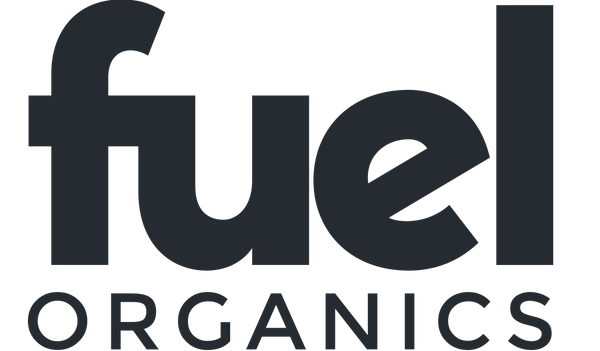The eight B vitamins play an essential role in our health, especially vitamin B12 (cobalamin) and vitamin B9 (folic acid). It’s important we make sure we’re receiving a proper intake of these nutrients to keep our bodies functioning, but it can be difficult to keep track of every vitamin and what specific role each plays in our health.
That’s why many people get confused about the difference between vitamin B12 and folic acid, and may wonder: are vitamin B12 and folic acid the same thing?
No, vitamin B12 and folic acid are not the same thing. Vitamin B12 is an essential nutrient that offers unique benefits to the body, while folic acid is the supplemental form of vitamin B9 and is taken for its own specific uses.
To learn more about the differences between vitamin B12 and folic acid, as well as why you need both of these vitamins in your diet, keep reading. In this article, we’ll break down everything you should know about the relationship between vitamin B12 and folic acid.
What is vitamin B12?
Vitamin B12 is a water-soluble vitamin that plays an important role in many of our systems, particularly in energy production, cellular function, and DNA synthesis.
This vitamin can be taken as a supplement, or found naturally in the following sources:
- Fish
- Meat
- Poultry
- Eggs
- Dairy products
According to the Food and Nutrition Board (FNB), the average healthy adult should consume 2.4 mcg of vitamin B12 per day.
What is folic acid?
Folic acid is the form vitamin B9 takes when used as a supplement, while folate refers to vitamin B9 in its natural form. This water-soluble vitamin, like vitamin B12, converts food into energy, assists in cellular function, and supports DNA synthesis.
Folic acid comes in supplement form, but folate can be derived naturally from the following food sources:
- Dark, green leafy vegetables
- Beans and lentils
- Peanuts
- Sunflower seeds
- Fruit
- Whole grains
- Liver
- Seafood
According to the FNB, the average healthy adult should consume 400 mcg of vitamin B9 per day.
Vitamin B12 vs folic acid
While vitamin B12 and folic acid have a lot of similarities in terms of how they function, there are some key differences we should be aware of.
For example, vitamin B12 plays a unique and important role in keeping the nervous system healthy. That’s why those of us not consuming enough vitamin B12 can suffer from neurological issues, like numbness and tingling in hands and feet.
Meanwhile, folic acid is known for its specific use in ensuring healthy pregnancies and improving pregnancy outcomes. That’s why many expectant mothers take folic acid supplements to aid in their and their fetuses' development.
But these aren’t the only differences between vitamin B12 and folic acid - the way these nutrients are absorbed into our bodies also differs significantly.
Vitamin B12 binds with protein in our food, and becomes separated from this protein by acids in the stomach. Then, this vitamin combines with a protein made in the stomach, and is finally absorbed by the body.
Folic acid, on the other hand, is absorbed primarily by the small intestine in a much less complicated process than vitamin B12 - it only takes one quick step.
Why take vitamin B12 and folic acid together?
Many people take vitamin B12 and folic acid together for peak results. These two vitamins have similar roles, as they’re both necessary for DNA synthesis and red blood cell formation.
Studies also show that both vitamin B12 and folic acid are extremely important for healthy neurological development, which is why taking them together can offer the most effective results.
Research shows that not only are the functions of vitamin B12 and folate inextricably linked due to their complementary roles, but that a deficiency in vitamin B12 results in a folate deficiency, and vice versa.
For this reason, we need to make sure we’re getting enough of each essential nutrient to support the other. We can achieve this by taking vitamin B12 with folic acid tablets to reduce the risk of developing pernicious anaemia
Luckily, anyone interested in adding more B12 to their diet can try the FuelOrganics high-quality vegan vitamin B12 supplement designed for healthy brain and nerve function.
Read more about: Can Vitamin B12 Help You Lose Weight? by clicking here
Final thoughts
While vitamin B12 and folic acid have overlapping roles in keeping us healthy, it’s important we understand that they are not the same thing. We need both of these essential nutrients to maintain proper nutrition and support the separate functions that each vitamin offers.
That’s why anyone invested in their health should make an effort to ensure they’re receiving the recommended daily intake for both vitamin B12 and folic acid.
Trusted sources
- Vitamin B12. Fact sheet for health professionals. National Institutes of Health. Office of Dietary Supplements. Retrieved from https://ods.od.nih.gov/factsheets/VitaminB12-HealthProfessional/#h2
- Folate. Fact sheet for health professionals. National Institutes of Health. Office of Dietary Supplements. Retrieved from https://ods.od.nih.gov/factsheets/Folate-HealthProfessional/#h2
- Troen AM. Folate and vitamin B12: function and importance in cognitive development. Nestle Nutr Inst Workshop Ser. 2012;70:161-71. doi: 10.1159/000337684. Epub 2012 Aug 31. PMID: 25825305.
- Kennedy D. O. (2016). B Vitamins and the Brain: Mechanisms, Dose and Efficacy--A Review. Nutrients, 8(2), 68. https://doi.org/10.3390/nu8020068

